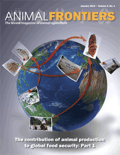
Animal Frontiers
Scope & Guideline
Connecting Researchers to Shape the Future of Animal Science
Introduction
Aims and Scopes
- Sustainable Animal Production:
The journal emphasizes sustainable practices in animal agriculture, focusing on methods that minimize environmental impact while maximizing productivity and animal welfare. - Animal Nutrition and Feed Science:
Research on nutritional strategies, feed formulations, and the use of alternative feed sources (like insects) is a central theme, reflecting the importance of nutrition in animal health and production efficiency. - Animal Health and Welfare:
Papers addressing animal health issues, welfare standards, and the interplay between livestock and wildlife are prevalent, highlighting the journal’s commitment to promoting ethical practices in animal husbandry. - Integrative Approaches:
The journal supports interdisciplinary research that combines genetics, physiology, and technology to advance animal production systems and address global challenges such as climate change. - Emerging Technologies in Animal Science:
A focus on innovative technologies, including automation, artificial intelligence, and genetic advancements, is evident, reflecting the journal's commitment to modernizing animal production. - Wildlife-Livestock Interactions:
Research exploring the dynamics between livestock and wildlife, including health implications and biodiversity considerations, is a significant area of focus, underlining the complexity of animal systems.
Trending and Emerging
- Climate Change and Animal Production:
Research addressing the impacts of climate change on animal health and production is gaining momentum, highlighting the need for adaptive strategies in livestock management. - Insect-Based Feed Alternatives:
There is a significant increase in research on the use of insects in animal feed, reflecting a growing interest in alternative protein sources and sustainable feeding practices. - Precision Livestock Farming:
Emerging technologies for monitoring and managing livestock health and productivity are trending, emphasizing the role of data and technology in modern animal agriculture. - Gut Microbiome and Animal Health:
Studies linking gut microbiota to animal health outcomes are expanding, recognizing the importance of microbiome research in improving animal nutrition and welfare. - Holistic Approaches to Animal Welfare:
There is a rising trend in research that takes a comprehensive view of animal welfare, integrating health, environmental, and ethical considerations into livestock management. - Socioeconomic Impacts of Animal Production:
Research exploring the socioeconomic aspects of animal agriculture, including its role in food security and rural development, is increasingly prominent, reflecting broader societal concerns.
Declining or Waning
- Traditional Livestock Production Systems:
There appears to be a waning interest in purely traditional livestock production methods as the field shifts towards more sustainable and technologically advanced practices. - Purely Theoretical Studies:
The journal seems to be moving away from studies that do not have practical applications or implications for animal production, favoring research that directly addresses real-world challenges. - Niche Species Research:
Research focusing on less common livestock species has decreased, possibly due to a growing emphasis on the more widely produced species that have a more significant impact on global food systems. - Historical Perspectives on Domestication:
Topics centered on the historical aspects of animal domestication are less frequently addressed, suggesting a shift towards contemporary and future-oriented research. - Animal Behavior Studies:
While still relevant, studies focused exclusively on animal behavior without direct links to production or welfare outcomes seem to be less prevalent.
Similar Journals
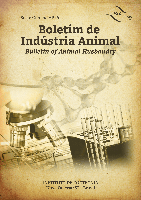
BOLETIM DE INDUSTRIA ANIMAL
Exploring the Future of Animal Industry InsightsBOLETIM DE INDUSTRIA ANIMAL is a prominent academic journal dedicated to the field of animal industry, published by the Instituto de Zootecnia. As an Open Access journal since 1974, it provides a vital platform for researchers, professionals, and students to disseminate knowledge and advancements in animal production, husbandry, and veterinary sciences. With its commitment to enhancing the visibility and accessibility of research, BOLETIM DE INDUSTRIA ANIMAL encourages rigorous scientific inquiry and innovation within its community. The journal presents a rich repository of articles encompassing a wide range of topics related to animal science and industry practices. Published in Brazil and accessible globally, it aims to foster collaboration and knowledge exchange among scholars, ultimately contributing to the advancement of sustainable practices in the agricultural and animal husbandry sectors.

ANIMAL SCIENCE PAPERS AND REPORTS
Elevating Knowledge in Animal Science for a Sustainable FutureANIMAL SCIENCE PAPERS AND REPORTS, published by the Polish Academy of Sciences, Institute of Genetics and Animal Biotechnology, is a distinguished platform for interdisciplinary research reflecting the evolving fields of Animal Science, Biotechnology, and Genetics. With an ISSN of 0860-4037 and an E-ISSN of 2300-8342, this journal serves as an essential resource for researchers and professionals aiming to advance their understanding and apply innovative methodologies in veterinary science and animal biotechnology. Despite being classified in Quartile 4 across several categories in 2023 and noting a notable country-based focus in Poland, it continues to provide valuable insights into animal genetics and biotechnological advancements, particularly as it converges its content from 2007 to 2024. While currently not an open access journal, ANIMAL SCIENCE PAPERS AND REPORTS is committed to upholding academic rigor, making it a key asset for students, researchers, and industry professionals looking to contribute to and stay informed in these vital scientific areas.
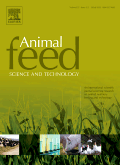
ANIMAL FEED SCIENCE AND TECHNOLOGY
Transforming Animal Welfare Through Nutritional InsightsANIMAL FEED SCIENCE AND TECHNOLOGY, published by Elsevier, is a leading journal in the field of Animal Science and Zoology, with an impressive Q1 quartile ranking and a 93rd percentile standing among its peers. Since its inception in 1976, this journal has been at the forefront of disseminating significant research in animal feed formulation, nutritional efficiency, and the technological advancements influencing feed science. With a reputation for high-impact studies, it serves as an essential resource for researchers, professionals, and students dedicated to the optimization of animal nutrition and welfare. The journal's comprehensive coverage of innovative methodologies and findings continues to shape practices in agricultural and biological sciences. For those keen to keep abreast of pivotal developments in the field, ANIMAL FEED SCIENCE AND TECHNOLOGY remains a crucial outlet for scholarly contributions and discussions.
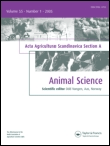
ACTA AGRICULTURAE SCANDINAVICA SECTION A-ANIMAL SCIENCE
Transforming Animal Science through Rigorous ResearchACTA AGRICULTURAE SCANDINAVICA SECTION A-ANIMAL SCIENCE, published by Taylor & Francis AS, offers a vital platform for the dissemination of research in the field of animal science. With an ISSN of 0906-4702 and an E-ISSN of 1651-1972, this esteemed journal is based in the United Kingdom and covers critical studies pertaining to animal biology, production, and welfare. Although it operates under a non-open access model, the journal maintains a commendable position in the academic community, evidenced by its Q3 category ranking in both animal science and food animals for 2023, reflecting a sustained impact in these domains. Covering research from 1992 to 2018 and continuing from 2020 to 2024, the journal provides insights crucial for addressing contemporary issues in livestock production, veterinary sciences, and animal breeding. Researchers, professionals, and students alike will find this journal indispensable for enhancing their understanding and advancing the field of animal sciences.
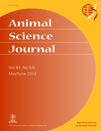
ANIMAL SCIENCE JOURNAL
Advancing the Frontiers of Animal ScienceAnimal Science Journal, published by Wiley, stands as a premier platform for advancing knowledge in the fields of Agricultural and Biological Sciences, Animal Science and Zoology, and Food Science. With an ISSN of 1344-3941 and an E-ISSN of 1740-0929, this journal not only enjoys a commendable Q2 ranking across multiple categories, reflecting its significance and impact within the academic community, but it also ranks within the top percentiles in terms of Scopus rankings. Operating out of the United Kingdom, the journal covers a broad spectrum of research topics relevant to animal science, encompassing both theoretical insights and practical applications. While it is not an open access journal, it remains an essential resource for researchers and practitioners eager to enhance their understanding of animal sciences, contribute to ongoing debates, and stay abreast of the latest findings from 2003 through 2024. Scholar engagement and innovative research are central to the journal’s objectives, making it an invaluable asset for students, professionals, and academics alike.
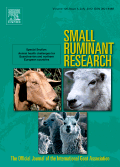
SMALL RUMINANT RESEARCH
Empowering the future of small ruminant production.SMALL RUMINANT RESEARCH is a premier academic journal committed to advancing the field of animal science, specifically focusing on the study and management of small ruminants. Published by Elsevier, this esteemed journal holds a significant standing, ranked in the Q2 category for both Animal Science and Zoology as well as Food Animals in 2023, reflecting its influence and relevance in the academic community. With an ISSN of 0921-4488 and an E-ISSN of 1879-0941, it disseminates high-quality research that encompasses a wide spectrum of topics, including nutrition, genetics, health, and management practices for sheep and goats. Although it does not offer open access, the journal ensures rigorous peer review and publishes articles that aim to bridge research gaps and promote best practices among industry practitioners. With its contribution to knowledge spanning from 1988 to 2024, SMALL RUMINANT RESEARCH serves as an essential resource for researchers, practitioners, and students dedicated to the enhancement of small ruminant production and welfare.

Italian Journal of Animal Science
Connecting global researchers for impactful discoveries.Italian Journal of Animal Science (ISSN: 1594-4077; E-ISSN: 1828-051X), published by Taylor & Francis Ltd, serves as a pivotal platform for the dissemination of cutting-edge research in the fields of animal science and zoology. Since its transition to Open Access in 2002, it has broadened its reach, allowing researchers from around the globe to share their findings and engage in critical dialogue. With its esteemed Q1 ranking in the 2023 category of Animal Science and Zoology and a notable position in the Scopus rankings—ranked 65 out of 490—this journal is a leader in driving the advancement of knowledge in animal science. The Italian Journal of Animal Science aims to publish original research articles, reviews, and methodological papers that contribute to the understanding of animal biology, welfare, nutrition, and conservation, making it a vital resource for researchers, professionals, and students dedicated to advancing the field. Based in the United Kingdom, and with a commitment to excellence, the journal is poised to continue fostering scholarly communication through 2024 and beyond.

Animal Bioscience
Exploring New Frontiers in Animal Production and WelfareAnimal Bioscience is a premier journal dedicated to advancing the field of animal science, published by the esteemed ASIAN-AUSTRALASIAN ASSOCIATION OF ANIMAL PRODUCTION SOCIETY. With an impactful presence in South Korea, this journal serves as a pivotal platform for disseminating high-quality research in animal production, nutrition, genetics, and veterinary sciences. Its notable standing is reflected in its categorization within the Q1 quartile for Animal Science and Zoology and Veterinary (miscellaneous) disciplines, highlighting the journal's dedication to excellence and relevance. Additionally, Animal Bioscience has secured impressive rankings in various related fields, with a 94th percentile position in general veterinary studies. As an Open Access publication, it encourages broad distribution and engagement with its content, making significant contributions to the global discourse surrounding animal technology and welfare. This journal is an invaluable resource for researchers, professionals, and students aiming to deepen their understanding and promote innovations in animal biosciences.

TROPICAL ANIMAL HEALTH AND PRODUCTION
Unveiling breakthroughs in tropical animal welfare.Tropical Animal Health and Production is a prominent academic journal dedicated to advancing the field of animal health and production in tropical environments. Published by Springer, this journal has been a pivotal platform for researchers and professionals since its inception in 1969, serving as a vital resource for innovative studies and advancements up to 2024. With impactful research findings, it holds a respectable Q2 ranking in both Animal Science and Zoology, and Food Animals, demonstrating its significance within these fields. The journal’s commitment to high-quality research is further reflected in its Scopus rankings, with a notable position in Agricultural and Biological Sciences and Veterinary Food Animals. Although it is not an open-access publication, the insights and knowledge shared within its pages are invaluable for those engaged in tackling the challenges of animal health and production in the tropics. Researchers and students will find Tropical Animal Health and Production an essential source for the most recent advancements and practices in veterinary science and animal care for food-producing species.

Ankara Universitesi Veteriner Fakultesi Dergisi
Advancing veterinary knowledge for a healthier tomorrow.Ankara Universitesi Veteriner Fakultesi Dergisi is a prominent academic journal published by ANKARA UNIV, focusing on advancements in veterinary sciences and animal biology. Since its inception, the journal has been committed to disseminating high-quality research, featuring articles that span a variety of topics within veterinary medicine and animal science. With an ISSN of 1300-0861 and an E-ISSN of 1308-2817, this journal provides valuable insights into the latest research developments and trends, making it a critical resource for researchers, professionals, and students in the field. The journal has established itself within the scholarly community, achieving a Q3 rank in Animal Science and Zoology and a Q2 rank in Veterinary (miscellaneous) as of 2023, reflecting its growing relevance and impact. Positioned in Turkey, it serves as a vital platform for both local and international scholars to share innovative findings and foster collaboration. Enhancing its accessibility, the journal's content is available through various academic databases, ensuring that its readership can effortlessly access and engage with cutting-edge research.